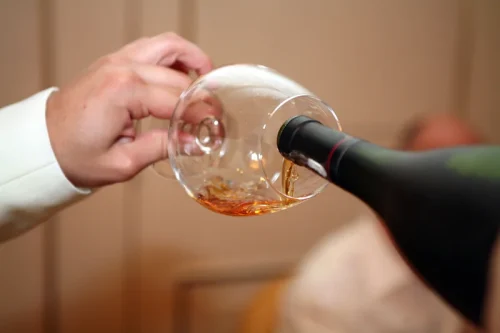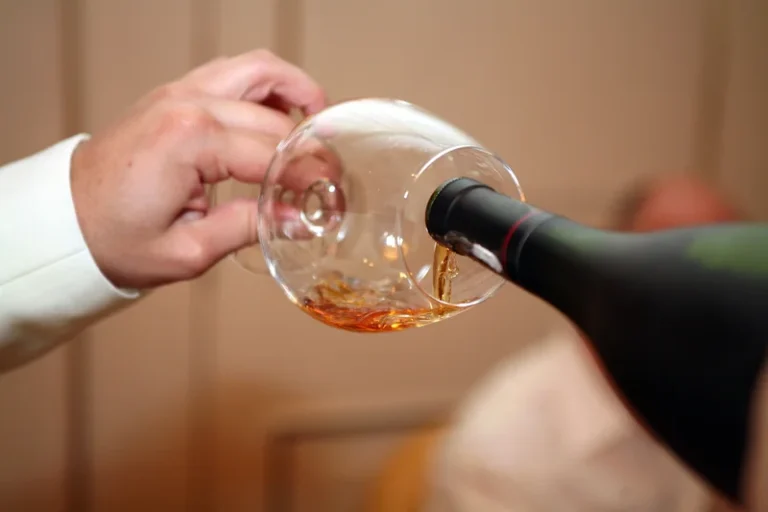The ASAM Clinical Practice Guideline on Alcohol Withdrawal Management

A direct taper means you continue to drink your regular drinks but slowly decrease the amount over time. Direct tapers are better if you prefer drinks that contain a low percentage of alcohol. There are two ways https://ecosoberhouse.com/ to taper off alcohol—a direct or substitution taper. The success of these strategies will depend on how much you drink and what you drink.
- Late symptoms begin between two and four days after the last drink, and they usually include changes in heart rate, breathing and blood pressure.
- Long-term treatment of AUD should begin concurrently with the management of AWS.8 Successful long-term treatment includes evidence-based community resources and pharmacotherapy.
- It’s also unclear how transitioning off GLP-1 RAs would affect people using them to treat SUDs.
- A new study published in the journal Addiction on October 16 investigates whether GLP-1 RAs could prove to be effective treatments for substance use disorders (SUDs).
- However, some groups have stepped in to try to bridge this gap and have published sample tapering schedules to help those trying to stop drinking.
Sample Alcohol Tapering Schedules
Sitting and talking with others who share your struggle can help you feel supported. Local groups like Alcoholics Anonymous (AA) can give you the moral support and strength you need. You may also consider joining an online support group to help you feel less alone. It might also be worth checking out a 12-step program in your area, like Alcoholics Anonymous or SMART Recovery, to see if it feels like something that might be useful for you.
What is Zohydro Addiction?
Tapering off alcohol involves gradually reducing the amount of alcohol you drink. Besides its positive health benefits, it can help you quit drinking after weeks or months. Contact emergency health services if you or someone you know experiences more than one symptom of severe alcohol withdrawal. For people who moderately consume alcohol, tapering off may be a good option.

Understand Detox

If you’re keeping up with this average (or less), the damage from alcohol is most likely minimal. It can be hard to find (or even know) the balance of how much alcohol your body is able to handle. If you’re not sure if your drinking crosses a certain line or not, try measuring your alcohol intake. “For patients who are left with cirrhosis after severe injury to the liver from alcohol, even one drink of alcohol is toxic to the liver,” cautions Dr. Lindenmeyer. In the short term, alcohol is processed through your liver in about an hour.

Why Do You Experience Withdrawal Symptoms?
Attempting to quit all at once can lead to severe symptoms that can be difficult to manage safely outside of a detox setting. Before beginning a tapering schedule, speak with your doctor about the risks of detoxing at home. Tapering off alcohol may complicate other medical conditions or co-occurring mental health disorders. Alcohol withdrawal symptoms range in severity depending on how extensive the misuse behavior was. The alcohol withdrawal symptom delirium tremens (DT) is estimated to kill up to 5% of those attempting to quit suddenly after chronic usage.
Why millions are trying FDA-authorized alternatives to Big Pharma’s weight loss drugs
- This reduces both the urge to carry out the behavior in question (i.e. cravings) and the feelings of gratification that results from fulfilling such an urge.
- Her fields of interest include Asian languages and literature, Japanese translation, cooking, natural sciences, sex positivity, and mental health.
- Getting professional help can mitigate harmful withdrawal symptoms and ensure success.
- Satisfying hobbies can distract you from wanting to drink, but they also help you relax — something everyone needs to do.
- Your healthcare provider will recommend and encourage treatment for alcohol use disorder.
Uncover early signs of alcoholism in a loved one, understand its impact and learn how to seek help. Discover how intensive outpatient intensity structure aids recovery, with research-backed insights and strategies. Unlock personal development with common CBT techniques, from journaling to homework strategies. Discover top trauma therapy types and innovative approaches to accelerate your healing journey.
- Those who find that they cannot taper off the number of drinks for any significant length of time have likely developed alcohol use disorder, a condition commonly known as alcoholism.
- However, improper tapering could lead to relapse, overdose, and severe health consequences.
- We publish material that is researched, cited, edited and reviewed by licensed medical professionals.
- Thus, a user will likely seek out alcohol again to rid themselves of the uncomfortable withdrawal symptoms.
- However, medically supervised detox and professional rehab are more likely to help you maintain long-term sobriety.
When you stop consuming alcohol after prolonged, heavy use, your CNS can’t respond or regulate itself fast enough. It becomes overexcited because there’s no more alcohol to slow it down. Some people experience prolonged withdrawal symptoms, like insomnia and mood changes, that can last for weeks or months. If you or someone you know needs help detoxing from alcohol, The Recovery Village Ridgefield Drug and Alcohol Rehab is here for you. Contact us today to speak with a representative and begin on the road to lasting addiction recovery.
This can sometimes cause unpleasant withdrawal symptoms, and these symptoms can make it hard to stick with your recovery plan. Alcohol is a central nervous system depressant that affects your brain. When you quit drinking or wean off alcohol, your body will adjust to the lack of alcohol in your body. Withdrawal usually begins 6 to 8 hours after the last drink and peaks within 72 hours. Alcohol how to taper off alcohol is the third-leading preventable cause of mortality in the United States, with approximately 95,000 people dying from alcohol-related causes each year. By gradually tapering off alcohol, you can lower your risk for alcohol-related accidents or death.


ใส่ความเห็น